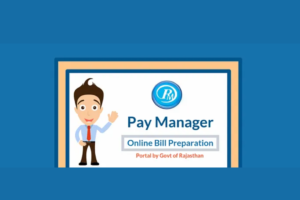A private company decides to go public by offering its shares in the market, this process is called IPO or Initial Public Offering. This is a major step for any company as it decides its future. A company offers IPO majorly to raise funds and become a prominent figure in the trading market.
In India, there are two types of IPO offered. In this article, we will learn about the types of IPOs and their differences to help you make an informed choice as a trader.
Types of IPO
IPOs are of two types namely Fixed Price Offerings and Book Building Offerings. Let’s learn about them in detail.
- Fixed Price Offerings
Fixed Price Offerings are the kind of IPOs where the price of each share made public for trading is predetermined by the company. This means that when the company makes its shares public, the prices of the shares are already decided and they stay the same.
Here, trading is regular as the investors know the amount they have to invest if they want the company’s shares. Since these prices play a vital role, companies hire merchant bankers and trading experts to finalize the price of each share.
Under fixed price offerings, the prices are determined on several factors including the company’s:
- Market position
- Assets and liabilities
- Prediction on future growth and risks involved.
- Book Building Offerings
Book building offerings, in a way, function opposite to fixed price offerings. Here, the price of shares is not predetermined. The company decides on a bracket price range and makes the share public in the stock market.
Thereafter, the investors bid on the shares between the price range and depending on the bidding value, the company finalises the price.
The price bracket has two values pre-determined- Floor price which is the lower range and cap price which is the highest value.
Book building offerings allow the company to gauge the market before deciding the price. This type of IPO has (mostly) enchanted chances of making profits.
What are the Differences Between Fixed Price Offerings and Book Building Offerings?
Fixed-price offerings and book-building offerings have contrasting features in the way they operate. Here are the major differences between the both:
- Pricing
The biggest difference between both kinds of IPOs stems from their pricing. As mentioned above, in a fixed price offering the prices of each share are first determined and made available to the public, while in the book building offering, prices are determined based on the investor’s bidding value.
- Payment
Another major difference between fixed price offerings and book building offerings is that in the former the investor has to make 100% payment of the share to get it alloyed in their name while in the latter, the investor has to pay once the allotment is done in their name.
- Subscription
The subscription or demand of fixed price offerings is known to the company only after they close the issue. On the other hand, the demand for book-building offerings is known to the company every day up until the IPO application is open.
- Profit
Both kinds of IPOs have their varying profit graph. Fixed price offerings feature shares whose prices are already decided and fixed till the application for the issue is open which brings stability but can also undermine the company’s value by fixing a price that is lower than the company’s market value.
In contrast, under book building offerings a company has a wider window to evaluate the market and then decide its share prices to ensure desirable profits.
Wrapping up
IPOs are big players in the Indian stock market. Fixed price offerings have been in the Indian market for decades while book building offering is the latest IPO kind. Both of them have huge potential for the investors to gain profit but as trading works, it demands research on the company and a thorough market evaluation.



















